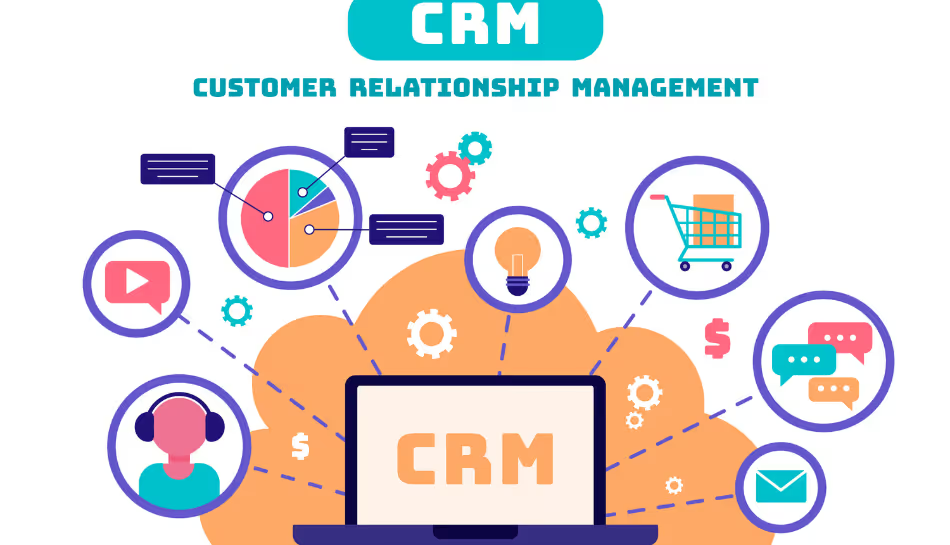Customer Relationship Management (CRM) systems are vital for building and maintaining strong customer relationships. However, implementing CRM software alone isn’t enough. Businesses also need the right people in the right roles to make the most of their CRM investment. Understanding the CRM roles and responsibilities within an organisation helps ensure smoother workflows, better customer interactions, and higher productivity.
Let’s explore the role of CRM in business operations and the key roles involved in successfully managing it.
The Role of CRM in an Organisation
CRM is more than a tool, it’s a business strategy. Its primary purpose is to centralise customer data, manage interactions, and improve sales, service, and marketing efforts. A well-implemented CRM helps companies:
- Track leads and sales
- Improve customer service
- Automate repetitive tasks
- Analyse customer behaviour
- Increase customer satisfaction and loyalty
But to unlock these benefits, companies must define and assign clear CRM roles and responsibilities to their teams.
Key CRM Roles and Their Responsibilities
1. CRM Manager / CRM Administrator
This is one of the most critical roles. Making sure the entire CRM system is in line with business goals is the responsibility of the CRM manager.
Responsibilities:
- Manage user access and permissions
- Ensure data accuracy and system integrity
- Train staff on CRM usage
- Coordinate CRM upgrades or integration
- Monitor CRM performance and user adoption
A good CRM manager acts as the bridge between IT and business teams, ensuring the CRM works effectively for all departments.
2. Sales Team
One of the main consumers of CRM systems is salespeople. Their role focuses on nurturing leads, closing deals, and maintaining client relationships.
Responsibilities:
- Record all interactions with prospects and clients
- Update lead status and sales progress
- Use CRM data to personalise sales pitches
- Track customer feedback and buying patterns
- Collaborate with marketing and customer service teams
Their active involvement helps ensure the CRM remains up to date with customer activity.
3. Marketing Team
Marketing teams use CRM systems to plan campaigns, analyse audience behaviour, and improve lead quality.
Responsibilities:
- Segment customer data for targeted campaigns
- Create and schedule email or social media campaigns
- Track campaign performance through CRM analytics
- Score leads for the sales team
- Collaborate with sales to refine messaging
By analysing CRM data, marketers can personalise outreach and measure ROI more effectively.
4. Customer Support / Service Team
Customer service representatives use CRM software to manage support tickets, track resolutions, and provide faster service.
Responsibilities:
- Log and respond to customer queries and complaints
- Track issue history for each customer
- Escalate unresolved issues to the right teams
- Analyse support trends for service improvement
- Ensure customer satisfaction and retention
CRM helps support teams offer a smoother and more consistent experience to customers.
5. IT Team / Technical Support
The CRM system's implementation, customisation, and upkeep are greatly aided by the IT department.
Responsibilities:
- Install, configure, and update the CRM software
- Integrate CRM with other systems (ERP, email, etc.)
- Manage data migrations and backups
- Troubleshoot technical issues
- Ensure data security and compliance
Their behind-the-scenes work ensures the CRM is stable, secure, and integrated across the company’s digital infrastructure.
6. CRM Analysts / Data Specialists
These professionals analyse CRM data to support strategic decision-making.
Responsibilities:
- Generate reports and dashboards
- Interpret trends in customer behaviour
- Provide insights for sales and marketing campaigns
- Suggest process improvements based on data
- Maintain data hygiene and consistency
By turning raw CRM data into actionable insights, analysts help all departments perform better.
Final Thoughts
Defining clear CRM roles and responsibilities helps organisations maximise the value of their CRM investment. From technical implementation to daily usage by sales and support teams, each role contributes to improving customer engagement and business efficiency.
Understanding the role of CRM across departments ensures everyone works together toward a shared goal: building stronger, more profitable customer relationships. As your business grows, evolving these roles will help your CRM stay aligned with both your customer expectations and internal objectives.



